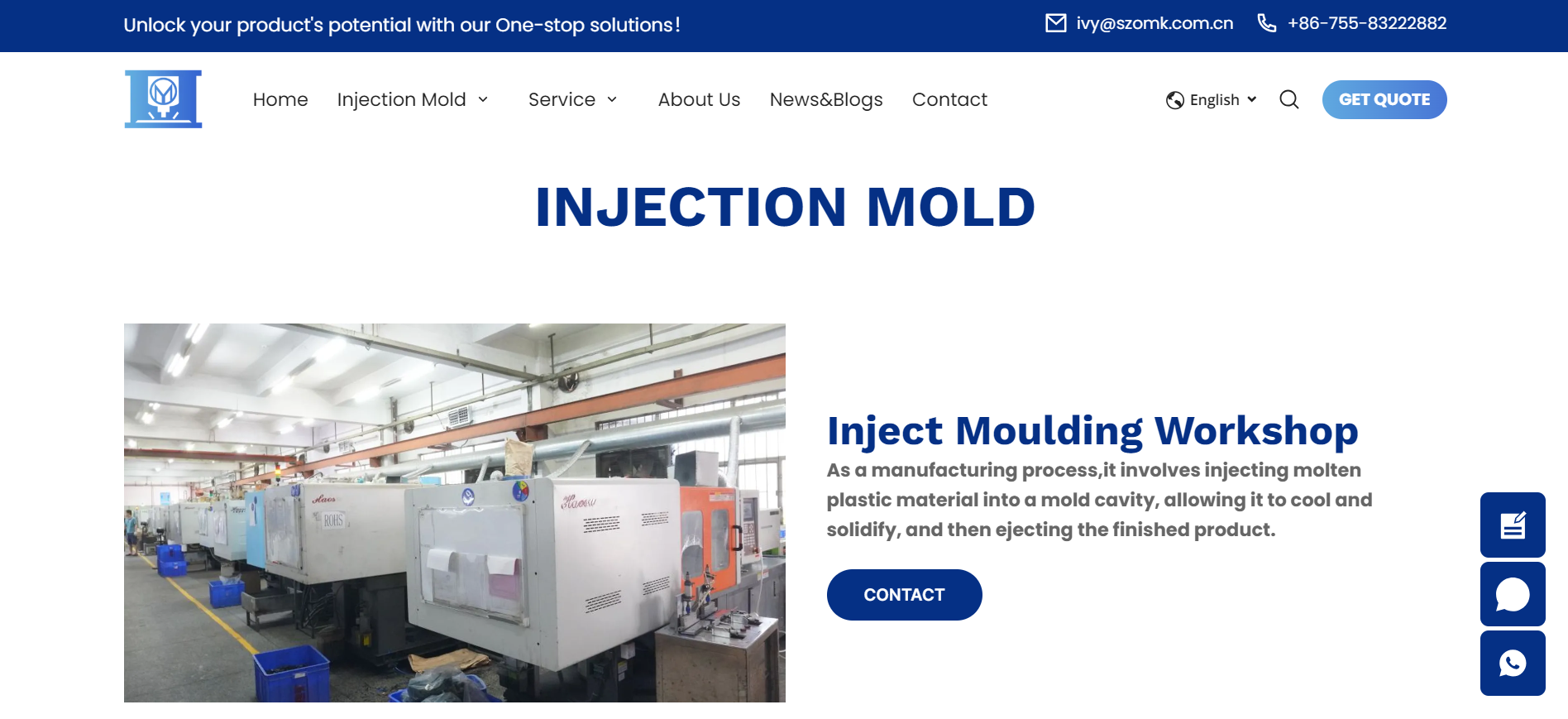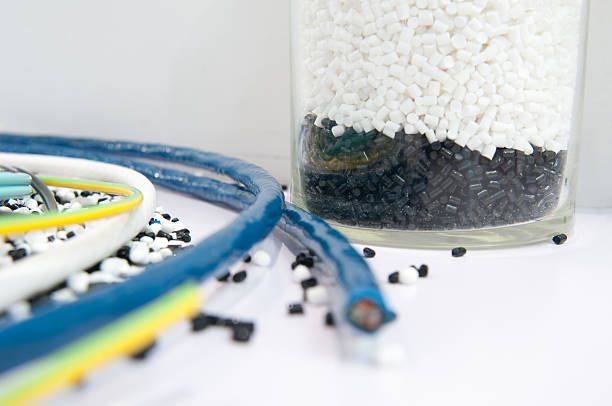Unlock your product's potential with our One-stop solutions!
+86-755-83222882

GET QUOTE
What Are the Most Popular Injection Moulding Materials?
Injection molding is a highly versatile manufacturing process used across a wide range of industries. From automotive parts to consumer electronics, the materials chosen for injection molding significantly influence the final product's properties, cost, and performance. In this blog, we will explore popular injection moulding materials, their characteristics, and their applications.
Understanding Injection Molding
What Is Injection Molding?
Injection molding is a manufacturing technique in which molten material is injected into a mold to create a specific shape. This process is widely used for producing large volumes of parts with high precision. Key to this process is the injection mold manufacturing itself, as the quality of the mold significantly affects the final product's durability, strength, and appearance. Therefore, the choice of injection molding materials is crucial because it directly influences the effectiveness of the mold and the overall quality of the end product.
Why Is Material Selection Important in Injection Molding?
Selecting the right material for injection molding can be a complex decision involving factors such as the material's mechanical properties, cost, environmental impact, and compatibility with the intended application. Here, we will discuss the most popular injection moulding materials and why they are favored in the industry.
Types of Injection Moulding Materials
Thermoplastics
Thermoplastics are among the most commonly used materials in injection molding due to their versatility and ease of processing. They can be melted and reformed multiple times, making them ideal for recycling.
Polypropylene (PP)
Polypropylene is one of the most popular injection moulding materials because of its low cost and excellent chemical resistance. It is widely used in packaging, automotive parts, and household goods. PP's flexibility and toughness make it suitable for a variety of applications, from living hinges to medical devices.
Acrylonitrile Butadiene Styrene (ABS)
ABS is a robust and impact-resistant thermoplastic often used in consumer electronics, toys, and automotive components. Its excellent dimensional stability and ease of machining make it a favorite for precision parts.
Polycarbonate (PC)
Polycarbonate is known for its high impact strength and optical clarity. It is commonly used in the manufacturing of lenses, medical devices, and protective gear. PC's ability to withstand high temperatures and its flame retardant properties also make it suitable for electrical and electronic applications.
Engineering Plastics
Engineering plastics are used in applications that require higher performance in terms of mechanical strength, thermal stability, and chemical resistance.
Nylon (Polyamide, PA)
Nylon is a versatile engineering plastic with high tensile strength, wear resistance, and chemical stability. It is used in automotive parts, industrial machinery, and consumer products such as gears and bearings.
Polyethylene Terephthalate (PET)
PET is best known for its use in beverage bottles but is also a popular injection molding material for making mechanical parts, food containers, and textile fibers. PET is valued for its strength, thermal stability, and resistance to moisture and chemicals.
Polyoxymethylene (POM)
Also known as acetal, POM is a high-performance engineering plastic known for its low friction, high stiffness, and dimensional stability. It is widely used in precision parts like gears, bearings, and fasteners.
Specialty Injection Moulding Materials
Thermoplastic Elastomers (TPE)
TPEs combine the properties of thermoplastics and elastomers, offering flexibility and resilience. They are commonly used in overmolding applications, soft-touch grips, and medical devices.
High-Performance Plastics
High-performance plastics like PEEK (Polyether ether ketone) and PTFE (Polytetrafluoroethylene) are used in extreme environments due to their exceptional thermal stability, chemical resistance, and mechanical properties. These materials are often found in aerospace, medical, and semiconductor industries.
Biodegradable Plastics
With growing environmental concerns, biodegradable plastics like polylactic acid (PLA) are becoming popular in injection molding. PLA is derived from renewable resources like corn starch and is used in packaging, disposable cutlery, and medical implants.
Factors Influencing the Choice of Injection Moulding Materials
Mechanical Properties
The mechanical properties of the material, such as tensile strength, impact resistance, and flexibility, are critical in determining its suitability for a particular application.
Thermal Properties
Materials must withstand the temperatures encountered during both the injection molding process and the end-use environment. Thermally stable materials are essential for high-temperature applications.
Chemical Resistance
Chemical resistance is important for materials used in harsh environments or in contact with corrosive substances. The choice of material must ensure longevity and reliability.
Cost Considerations
The cost of the material can significantly affect the overall production cost. While high-performance materials offer superior properties, they come at a higher price. Balancing cost and performance is key to selecting the right material.
Environmental Impact
Sustainability is becoming increasingly important in material selection. Biodegradable and recyclable materials are gaining traction as industries aim to reduce their environmental footprint.
Applications of Popular Injection Moulding Materials
Automotive Industry
The automotive industry extensively uses materials like PP, ABS, and Nylon for manufacturing components such as dashboards, bumpers, and engine parts. These materials offer the necessary strength, flexibility, and heat resistance required for automotive applications.
Consumer Electronics
In consumer electronics, materials like ABS and PC are preferred for their durability and aesthetic qualities. They are used in the production of housings, connectors, and various electronic components.
Medical Devices
Medical devices require materials that meet strict regulatory standards for safety and biocompatibility. PC, PP, and specialty TPEs are commonly used for their non-toxicity and ability to be sterilized.
Packaging
The packaging industry relies on materials like PET and PLA for their transparency, strength, and recyclability. These materials are used for making bottles, containers, and films.
Construction
In construction, materials like Nylon and ABS are used for producing strong and durable components like fasteners, brackets, and fittings. These materials provide the required mechanical properties and resistance to environmental factors.
Future Trends in Injection Moulding Materials
Sustainable Materials
The demand for sustainable materials is expected to rise, driven by environmental concerns and regulatory pressures. Biodegradable and recyclable materials will likely see increased adoption in various industries.
Advanced Composites
The use of advanced composites in injection molding is on the rise, offering enhanced mechanical properties and lightweight solutions. These materials are particularly relevant in aerospace and automotive applications.
Nanomaterials
Nanomaterials are being explored for their unique properties, such as increased strength, electrical conductivity, and thermal resistance. Their incorporation into injection molding materials could lead to innovative applications and improved product performance.
Conclusion
Choosing the right material for injection molding is a crucial step in the manufacturing process. The most popular injection moulding materials include thermoplastics like PP, ABS, and PC, as well as engineering plastics such as Nylon, PET, and POM. Specialty materials like TPEs, high-performance plastics, and biodegradable options also play significant roles in various applications. By understanding the properties and applications of these materials, manufacturers can make informed decisions that balance performance, cost, and sustainability. As the industry evolves, staying abreast of material innovations will be key to maintaining a competitive edge in injection molding.
At SZOMK, we specialize in providing top-notch injection molding services tailored to your specific needs. With our extensive experience and cutting-edge technology, we ensure the highest quality standards for all your injection molding projects. Whether you need help selecting the best material for your product or require a reliable partner for large-scale production, SZOMK is here to support you every step of the way. Trust us to deliver exceptional results and bring your innovative ideas to life. Choose SZOMK for your plastic injection molding needs and experience the difference in quality and service.


